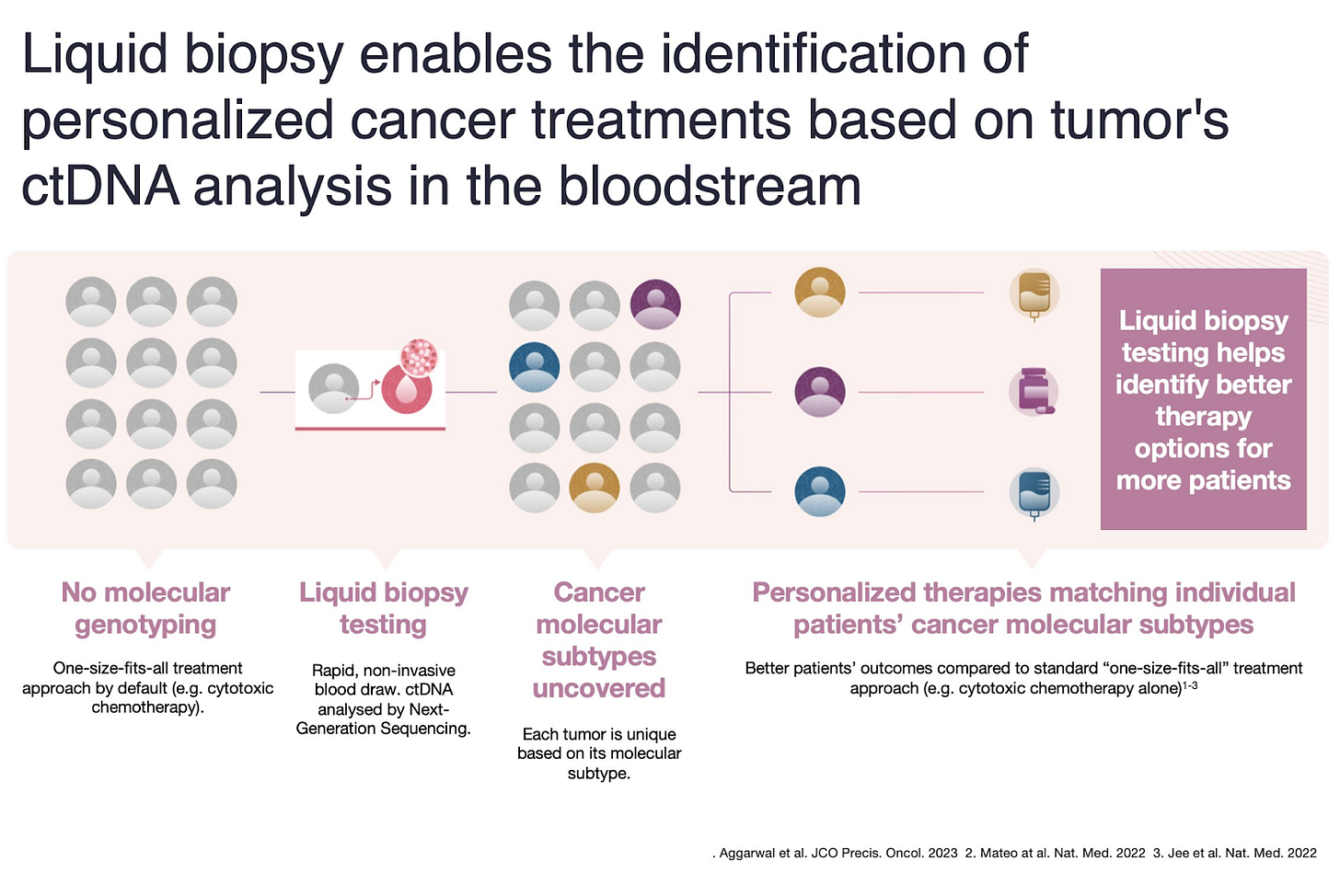As well as regularly sharing news, analysis, and events, Air Street Press will occasionally hand the mic to friends and portfolio companies so they can share insights into how AI is transforming their respective fields. Today, it’s Tommi Lehtonen, Co-Founder and CEO of Hedera Dx, a company working on modern cancer care solutions.
Biopsies are a foundational step in cancer care. We use them to confirm the presence of cancer, its molecular type, the choice of therapy options, and to monitor the effects of said treatment.
In most of the world, tissue biopsy - where a sample of tissue is obtained e.g. via a thick needle punch for examination - is considered to be the ‘gold standard’. This process is invasive, expensive, and limited to a sample from a single tumor site - even though tumors are often heterogeneous. Moreover, in up to 40% of cases, the patient can be ineligible or the biopsy can fail.
A more recently developed alternative is the liquid biopsy. Here, a cancer patient’s blood sample is drawn and circulating tumor DNA (ctDNA) is isolated for analysis that is reflective of the tumor from where the cancer cells came. By using blood, liquid biopsies analyze circulating tumor cells and DNA, providing comprehensive information about the tumor. They are also easily repeatable, potentially providing new options for monitoring disease progression and response to treatment.
The mass adoption of liquid biopsies unlocks the promise of personalized cancer care, which will be transformative for patients. Building a precise understanding of a tumor helps identify effective strategies and ensure that patients don’t suffer unnecessarily from the effects of interventions that are unlikely to help them.
Study after study has shown the effectiveness of this approach, which is why it’s increasingly being adopted by US hospitals. This has produced large private and public companies such as Tempus, Guardant Health, and Exact Sciences.
But it’s a different picture in Europe.
This boils down to market structure around data and laboratory infrastructure. Liquid biopsies, much like many other innovations in cancer treatment, rely on the analysis of molecular data. In the US, molecular testing happens in big, central labs. Companies like Tempus provided molecular testing services, combined with an AI-powered precision medicine platform. Meanwhile, Flatiron Health aggregates and anonymizes the data from its oncology-specific electronic medical record system to generate real-world evidence that supports decision-making.
Because of how European healthcare is financed and structured, molecular testing happens in the local molecular labs of each hospital. Data is siloed in disparate local lab systems, making it hard to pool data for research, identify patterns, or develop improved liquid biopsy assays and clinical decision support tools.
It’s also a huge missed opportunity for drug discovery. In the US, 60% of all drug oncology filings with the FDA and EMA include real-world data.
Either, we accept that billions of people will receive suboptimal cancer care and suffer unnecessarily, or we use technology to work around these challenges. We strongly believe in the latter option.
Firstly, we provide the molecular testing solution. The Hedera Profiling 2 ctDNA Test Panel is a comprehensive 32-gene assay that works efficiently with the Next-Generation Sequencing devices found in most hospital labs. This is matched with Hedera Prime, which is an AI-enabled bioinformatic software product to rapidly interpret results and generate reports that contain actionable genomic insights connected to therapy options approved by US and European regulators.
We also solve the data problem with a first-of-its kind data registry. Hedera Frame combines different consented, pseudonymised, or anonymised data streams from a large network of hospitals, biobanks, and registries.
Our solution is already being implemented in 20 institutions across 8 European countries. We’ve shown that it achieves market-leading performance across the primary detection metrics for liquid biopsy, beating established names like Thermo Fisher and Roche.
By combining AI, bioinformatics, and access to large pools of data, we believe it’s possible to overcome these structural roadblocks and ensure patients outside the US have access to effective, modern cancer care. Our ambition now is to expand our work rapidly across more institutions and countries, providing better therapy options for more patients.
You can read more about Hedera Dx on their website, X, and LinkedIn.







